You are here
New Releases
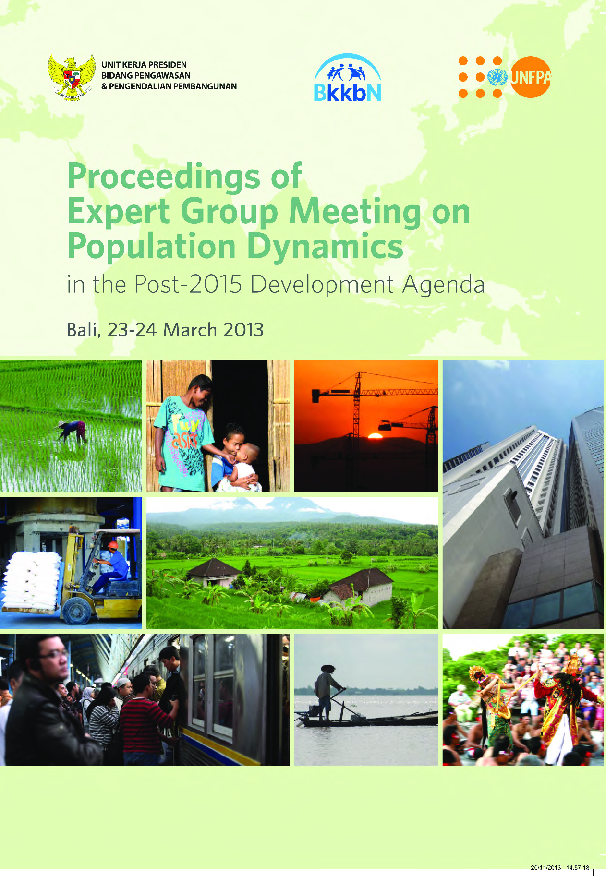
Proceedings of Expert Group Meeting on Population Dynamics in the Post 2015 Development Agenda
The National Population and Family Planning Board (BKKBN) and the United Nations Population Fund (UNFPA), with the support of the President’s Delivery Unit for Development Monitoring and Oversight (UKP4), hosted an Expert Group Meeting on Population Dynamics and the post-2015 Development Framework. A group of national policy makers and experts were joined by regional and international scholars. Policy analysts attended presentations and participated in Working Groups to define a set of recommendations to be incorporated into the emerging new development framework
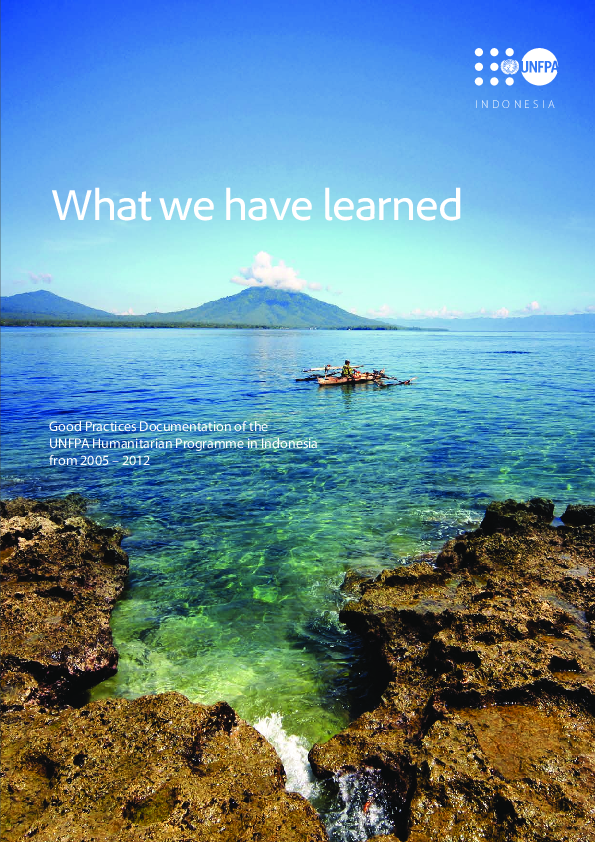
Good Practices Documentation of the UNFPA Humanitarian Programme in Indonesia from 2005 – 2012
The Indonesian archipelago is geographically susceptible to natural disasters because of the country’s location at the juncture of three active tectonic plates: the Pacific plate, the Indo- Australia plate and the Eurasia plate. There are several active volcanoes scattered throughout the islands and the surrounding sea. Major disasters strike periodically, taking lives and devastating infrastructure. Man-made environmental and complex emergencies also trigger humanitarian events in Indonesia, ranging from small-scale to national-level emergencies.
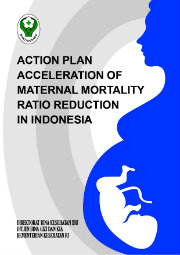
Action Plan - Acceleration of Maternal Mortality Ratio Reduction in Indonesia
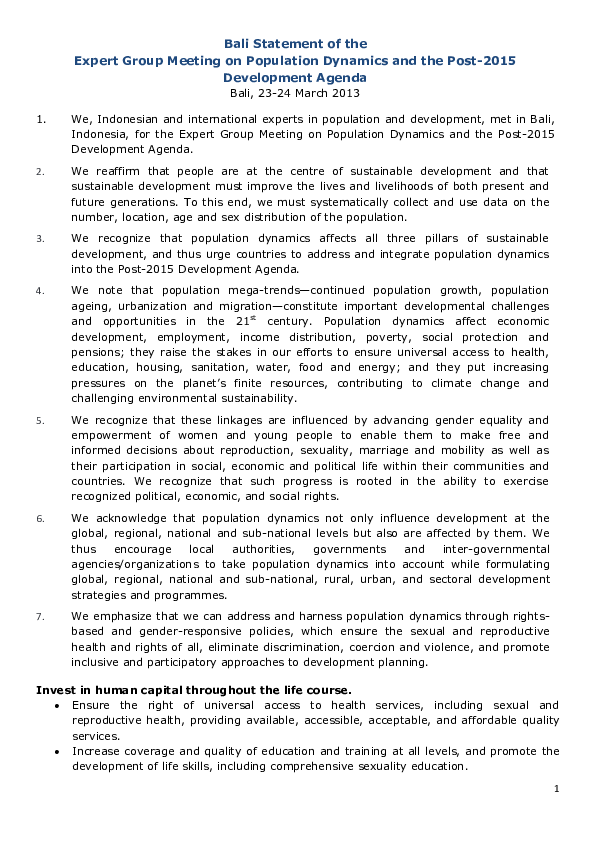
Bali Statement of the Expert Group Meeting on Population Dynamics and the Post-2015 Development Agenda
We, Indonesian and international experts in population and development, met in Bali, Indonesia, for the Expert Group Meeting on Population Dynamics and the Post 2015 Development Agenda.
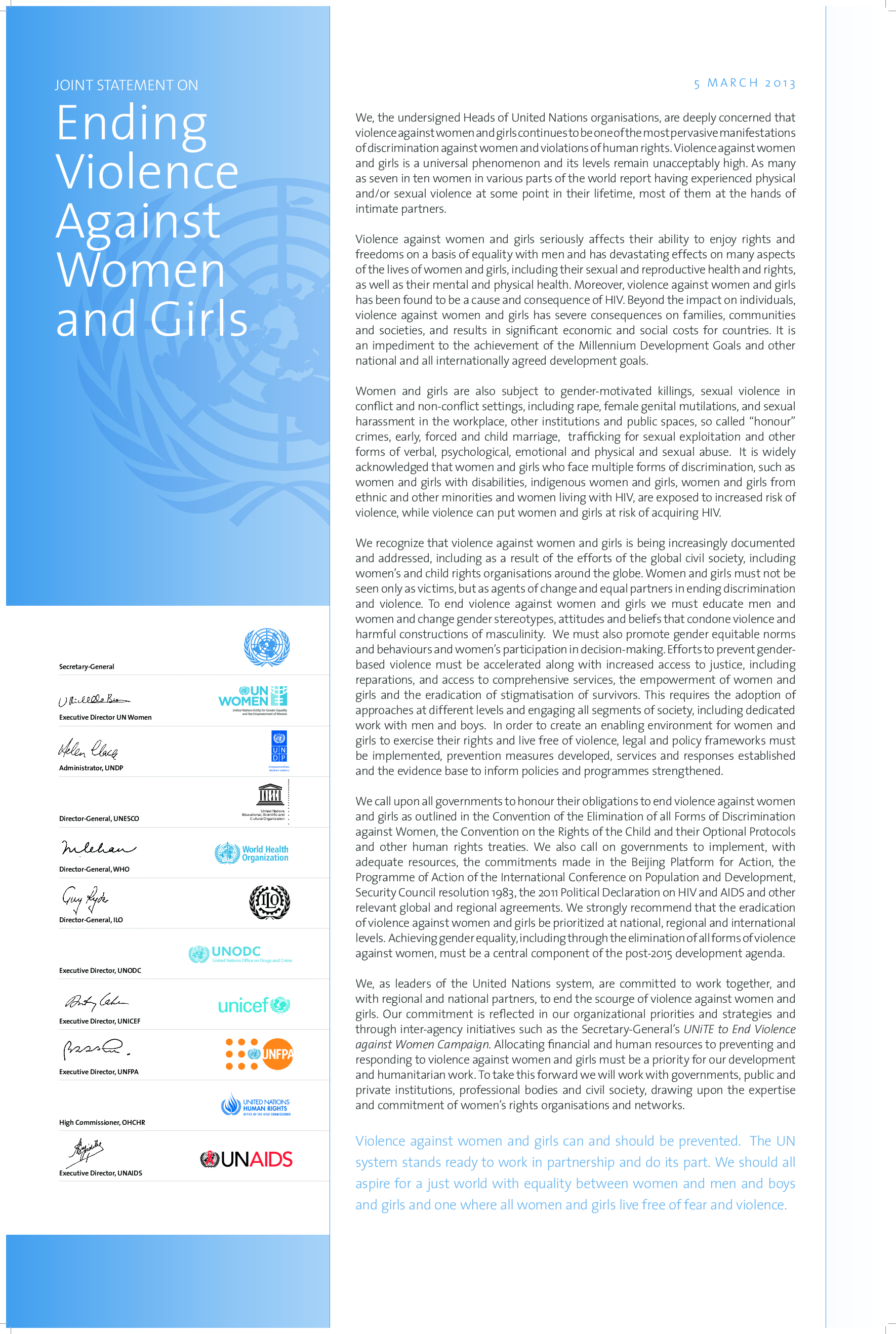
UN Principals Joint Statement on Ending Violence Against Women and Girls
We, the undersigned Heads of United Nations organisations, are deeply concerned that
violence against women and girls continues to be one of the most pervasive manifestations
of discrimination against women and violations of human rights. Violence against women
and girls is a universal phenomenon and its levels remain unacceptably high. As many
as seven in ten women in various parts of the world report having experienced physical
and/or sexual violence at some point in their lifetime, most of them at the hands of
intimate partners
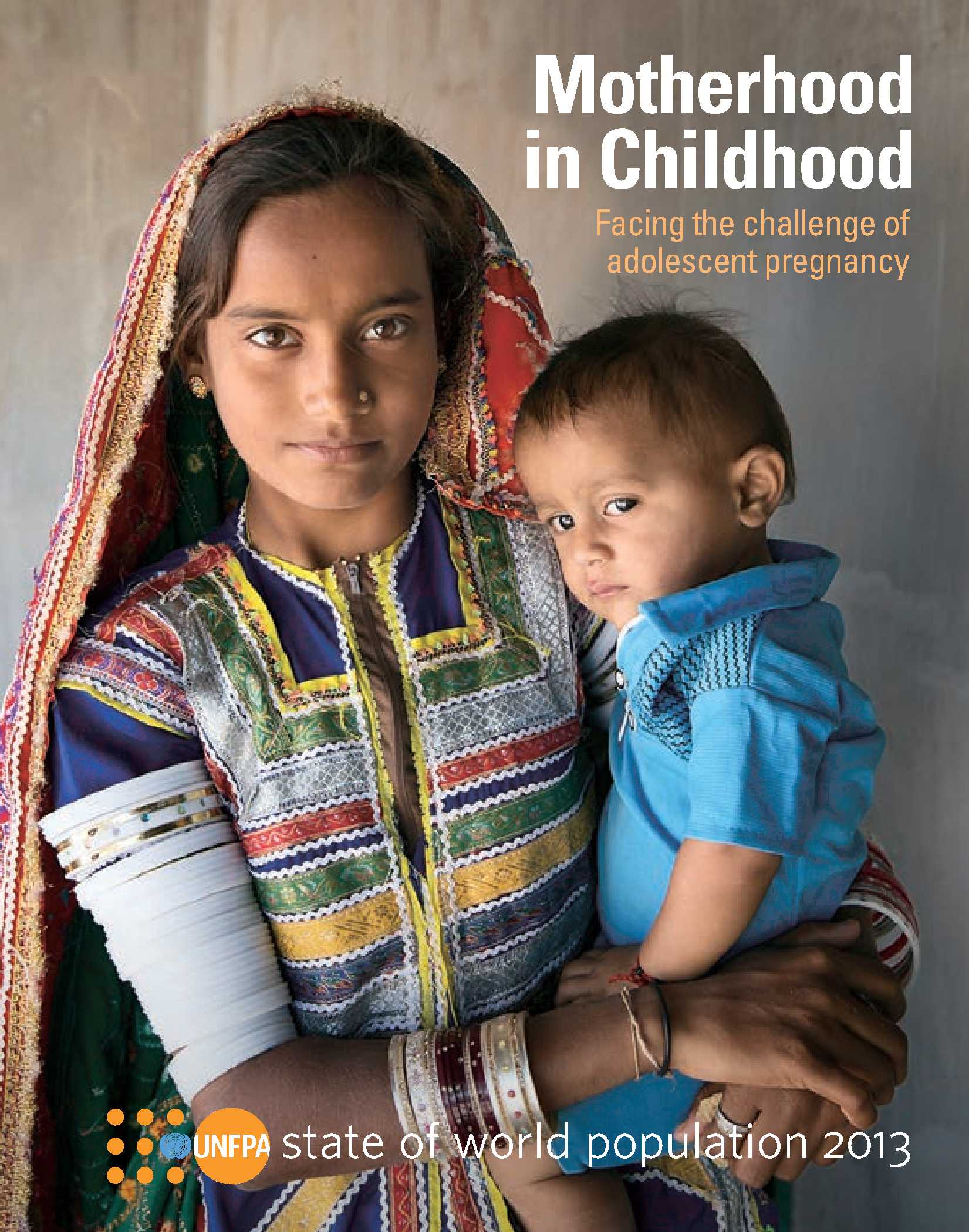
State of World Population 2013 - Motherhood in Childhood: Facing the Challenge of Adolescent Pregnancy
Every day in developing countries, 20,000 girls below age 18 give birth. Nine in 10 of these births occur within marriage or a union. This has consequences on the health, education, employment and rights of an untold millions of girls. What are the challenges of adolescent pregnancy, and what can we do to ensure girls have a healthy and safe transition into adulthood?
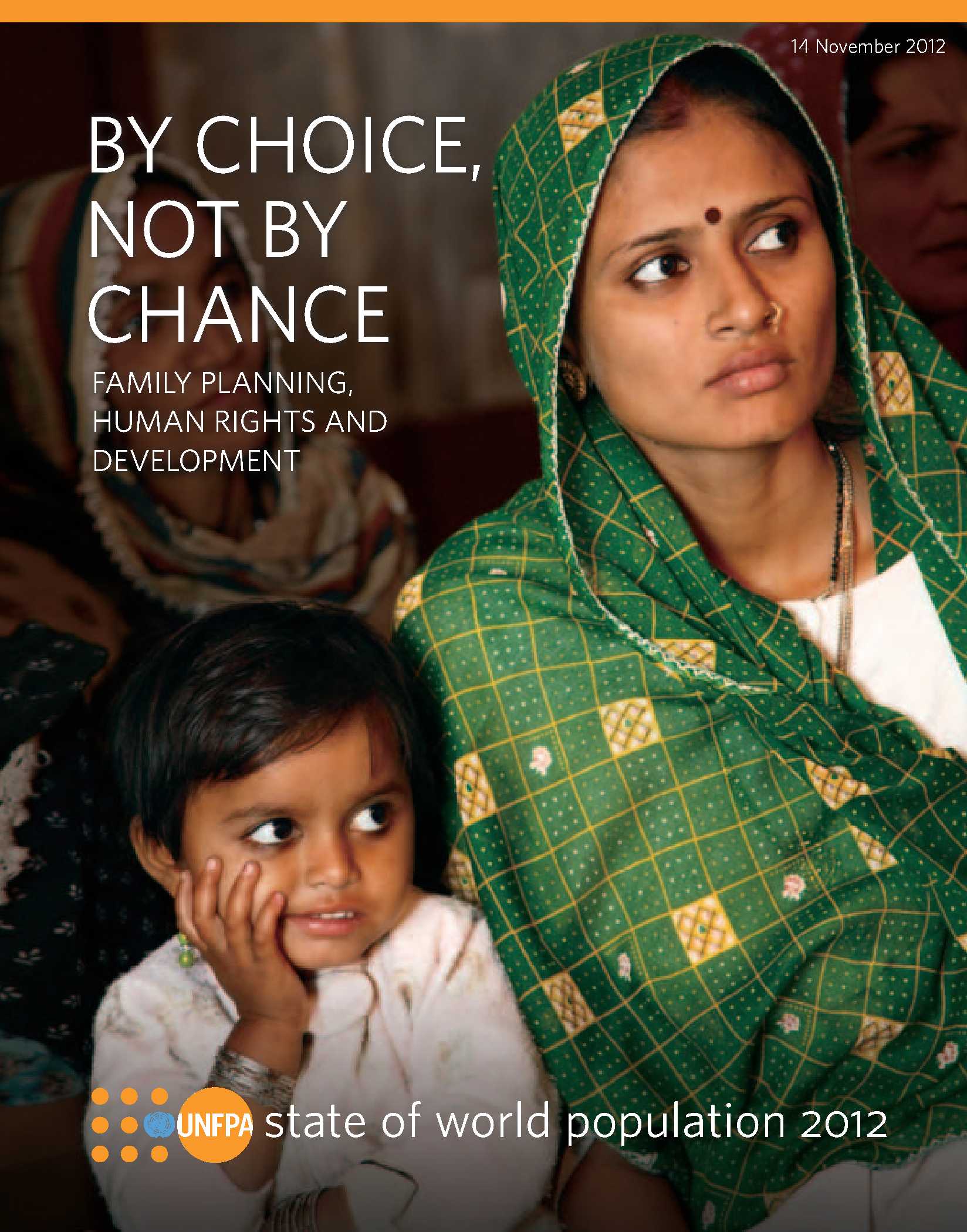
State of World Population 2012 - By Choice, Not By Chance: Family Planning, Human Rights and Development
Planning the number and timing of one’s children is today largely taken for granted by the millions of people who have the means and power to do so. Yet a large proportion of the world’s people do not enjoy the right to choose when and how many children to have because they have no access to family planning information and services, or because the quality of services available to them is so poor that they go without and are vulnerable to unintended pregnancy.
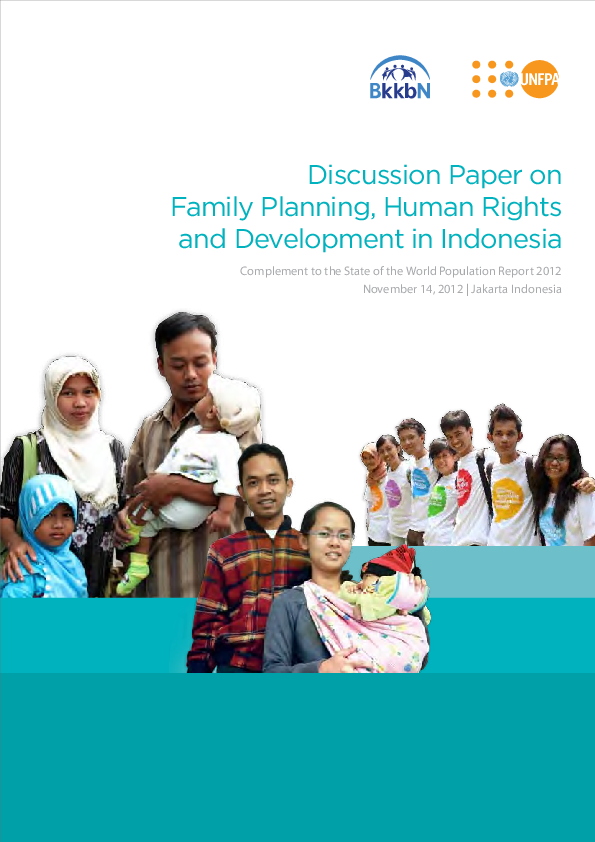
Discussion Paper on Family Planning, Human Rights and Development in Indonesia (SWOP 2012)
Indonesia’s family planning program has been recognized as one of the key international successes in national-level interventions on reproductive health. During the past 40 years, Indonesia has achieved a significant drop in the total fertility rate from 5.6 in the late 1960s to a current rate of 2.3.1 The use of contraceptives among adults of reproductive age rose steadily from 18.3% in 1976 to 61.4% in 2007. 2 This can be directly credited to the family planning program founded in 1970 under the auspices of the National Family Planning Coordination Board (BKKBN – now the National Population and Family Planning Board) with the goals of addressing rapid population growth leading to economic progress and improving the health and quality of life for citizens.
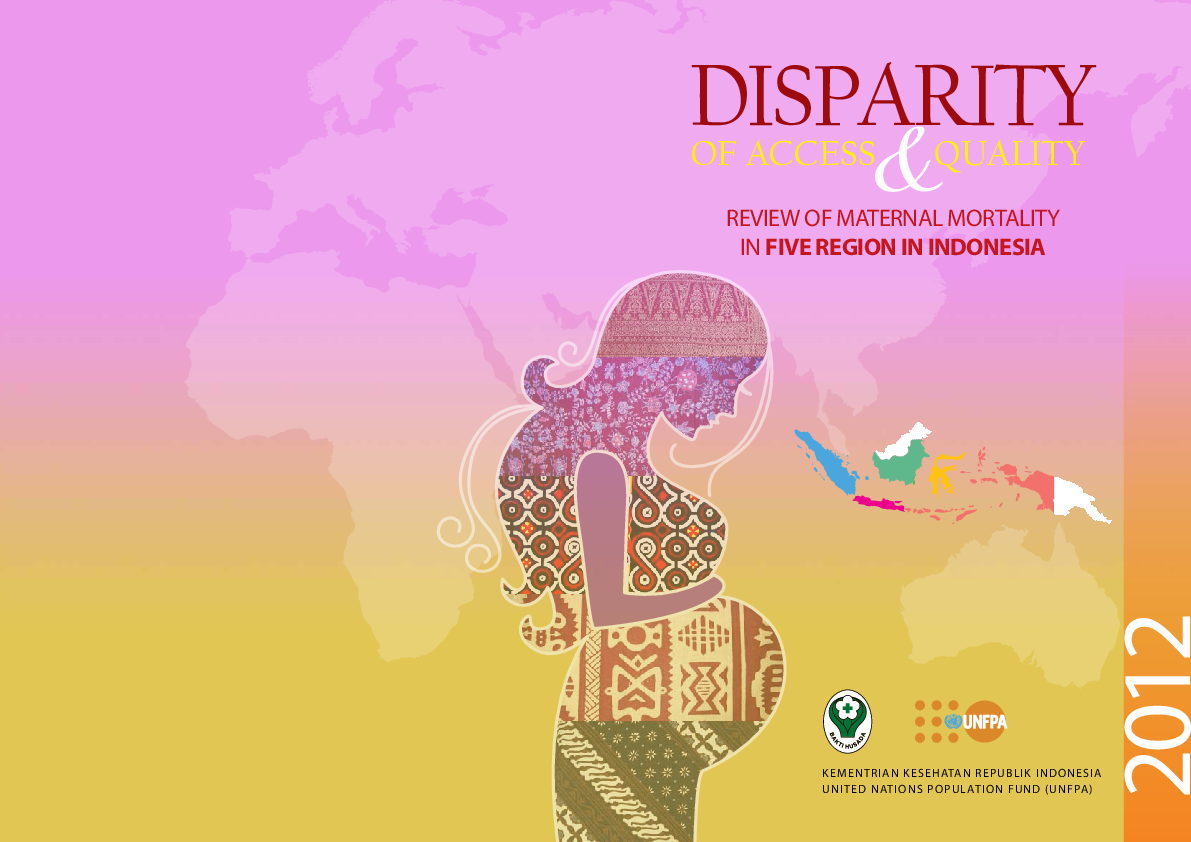
Disparity of Access & Quality Review of Maternal Mortality in Five Region in Indonesia
The Maternal Mortality Ratio (MMR) in Indonesia is higher than those of neighboring countries in ASEAN. It is estimated that 20,000 women die from complications of pregnancy or childbirth per fi ve million births each year. According to a UNDP report, the risk of maternal death in Indonesia is 1 in 65 mothers, compared to 1 in1,100 mothers in Thailand. To reduce maternal death, it is necessary to examine the causes of maternal death. Much information on the causes of death has been obtained, but this has not been adequately analyzed by region, despite the disparities among regions. Such information is very important because different health statuses require different interventions. Therefore, the National Institute of Health Research and Development (Balitbangkes), under the Ministry of Health, in collaboration with BPS-Statistics Indonesia and University of Indonesia conducted the SP2010 Follow-up Study and Review Maternal Mortality Determinant in fi ve regions in order to obtain information on the causes of maternal deaths.
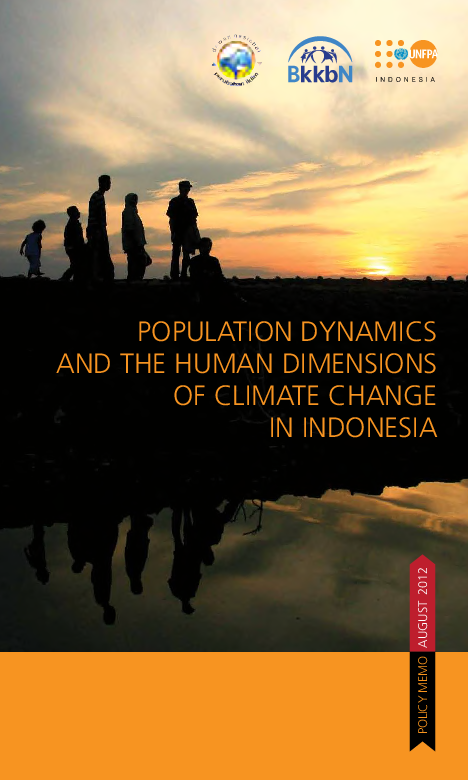
Policy Memo Population Dynamics and Climate Change
Climate change is about people as well as climate. During the last 20 years climate scientists have confirmed that global warming over the last century is “unequivocal” and that human activities are “very likely” the major cause (iPcc 2007). it is important now to study in more depth the anthropogenic causes and consequences of climatechange. many of these are grounded in demographic change (o’neillet al. 2010).